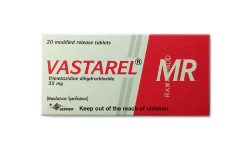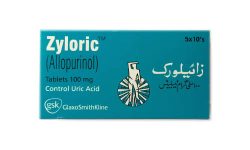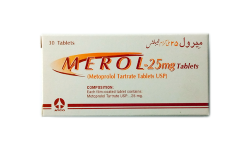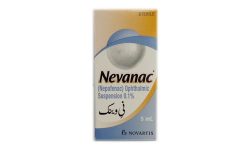COVERSYL TABLET
Irfan Traders exporter of Coversyl Tablet at lower and competitive affordable rates. Coversyl Tablet lowers high blood pressure, a condition which doctors call hypertension. This pressure helps get your blood all around the body. Your blood pressure may be different at different times of the day, depending on how busy or worried you are. You have high blood pressure when your blood pressure stays higher than is needed, even when you are calm or relaxed.
Description
Comprehensive Overview of Coversyl Tablet
Introduction to Coversyl Tablet:
Coversyl tablet is a brand name for a medication that contains perindopril as its active ingredient. Perindopril is classified as an angiotensin-converting enzyme (ACE) inhibitor, a class of drugs commonly used to treat hypertension (high blood pressure) and other cardiovascular conditions.
This detailed description will explore various aspects of Coversyl tablets, including their pharmacology, therapeutic uses, dosage, side effects, precautions, and potential interactions.
Pharmacology:
Coversyl tablet primary’s pharmacological action stems from its role as an ACE inhibitor. ACE inhibitors work by inhibiting the conversion of angiotensin I to angiotensin II, a powerful vasoconstrictor. By reducing the production of angiotensin II, Coversyl leads to vasodilation (widening of blood vessels), lowering blood pressure.
Additionally, ACE inhibitors like perindopril can decrease the secretion of aldosterone, a hormone that promotes salt and water retention, contributing to their antihypertensive effects.
Therapeutic Uses:
Coversyl tablet is predominantly prescribed for the treatment of hypertension. By lowering blood pressure, it helps reduce the risk of cardiovascular events such as heart attacks and strokes.
Additionally, Coversyl tablet may be used in the management of other cardiovascular conditions, including heart failure and post-myocardial infarction (heart attack) treatment.
- Hypertension: Coversyl is often prescribed as a first-line treatment for hypertension. It is effective as monotherapy or in combination with other antihypertensive medications.
- Heart Failure: In patients with heart failure, Coversyl may be used to improve symptoms and reduce the risk of hospitalization.
- Post-Myocardial Infarction: Coversyl is beneficial in patients who have experienced a heart attack, helping to prevent further cardiovascular events.
Dosage and Administration:
The dosage of Coversyl tablet can vary depending on the specific condition being treated, the patient’s medical history, and individual response to the medication.
It is crucial to follow the healthcare provider’s instructions and the information provided on the prescription label. The tablets are usually taken orally, with or without food.
- Hypertension: The typical starting dose for hypertension is often 4 mg once daily, with adjustments made as necessary based on blood pressure response.
- Heart Failure: In heart failure, the initiation and titration of Coversyl should be closely monitored by a healthcare professional.
- Post-Myocardial Infarction: The recommended starting dose after a heart attack is commonly 2 mg daily, with subsequent adjustments based on individual patient response.
Side Effects:
While Coversyl tablet is generally well-tolerated, like any medication, it may cause side effects. Common side effects include:
- Hypotension: As an antihypertensive medication, Coversyl can cause low blood pressure, leading to symptoms such as dizziness and fainting.
- Cough: A persistent dry cough is a known side effect of ACE inhibitors, including Coversyl. If this side effect becomes bothersome, alternative medications may be considered.
- Hyperkalemia: ACE inhibitors can sometimes lead to elevated levels of potassium in the blood, which can be serious. Regular monitoring is often recommended.
- Renal Impairment: In rare cases, ACE inhibitors can affect kidney function, particularly in patients with pre-existing renal conditions.
- Angioedema: Although uncommon, ACE inhibitors have been associated with angioedema, a severe swelling of deeper layers of the skin. This is a serious condition that requires immediate medical attention.
Individuals need to report any unusual or severe side effects to their healthcare provider promptly.
Precautions and Contraindications:
Certain precautions and contraindications should be considered before initiating Coversyl therapy.
- Pregnancy and Breastfeeding: Coversyl is not recommended during pregnancy, especially during the second and third trimesters, as it may cause harm to the developing fetus. It is also not recommended during breastfeeding.
- Renal Impairment: Caution is advised in patients with impaired renal function, and dosage adjustments may be necessary.
- Hypotension: Patients with a history of hypotension or those at risk of excessive drops in blood pressure should use Coversyl cautiously.
- Hyperkalemia: Monitoring potassium levels is crucial, especially in patients with renal impairment or those taking potassium-sparing diuretics.
- Angioedema: Patients with a history of angioedema or hypersensitivity reactions to ACE inhibitors should not use Coversyl.
Drug Interactions:
Coversyl tablet may interact with other medications, potentially altering their effects or increasing the risk of side effects. Some notable interactions include:
- Potassium-Sparing Diuretics: Concurrent use of potassium-sparing diuretics may increase the risk of hyperkalemia.
- Non-Steroidal Anti-Inflammatory Drugs (NSAIDs): NSAIDs, including over-the-counter varieties, can reduce the antihypertensive effects of ACE inhibitors and increase the risk of renal impairment.
- Lithium: ACE inhibitors may increase lithium levels, necessitating careful monitoring when used together.
- Aliskiren: The concomitant use of aliskiren and ACE inhibitors is generally not recommended due to an increased risk of renal impairment, hypotension, and hyperkalemia.
Patients should inform their healthcare provider about all medications, including prescription, over-the-counter, and herbal supplements, before starting Coversyl.
Conclusion:
Coversyl tablet, with perindopril as its active ingredient, is a widely prescribed medication for the management of hypertension and various cardiovascular conditions. Its role as an ACE inhibitor contributes to its efficacy in lowering blood pressure and improving outcomes in patients with heart failure and post-myocardial infarction.
While generally well-tolerated, patients need to be aware of potential side effects, precautions, and drug interactions.
Regular monitoring and open communication with healthcare providers are crucial to ensuring Coversyl’s safe and effective use. As with any medication, individuals should consult their healthcare professional for personalized advice based on their medical history and current health status.






Reviews
There are no reviews yet.